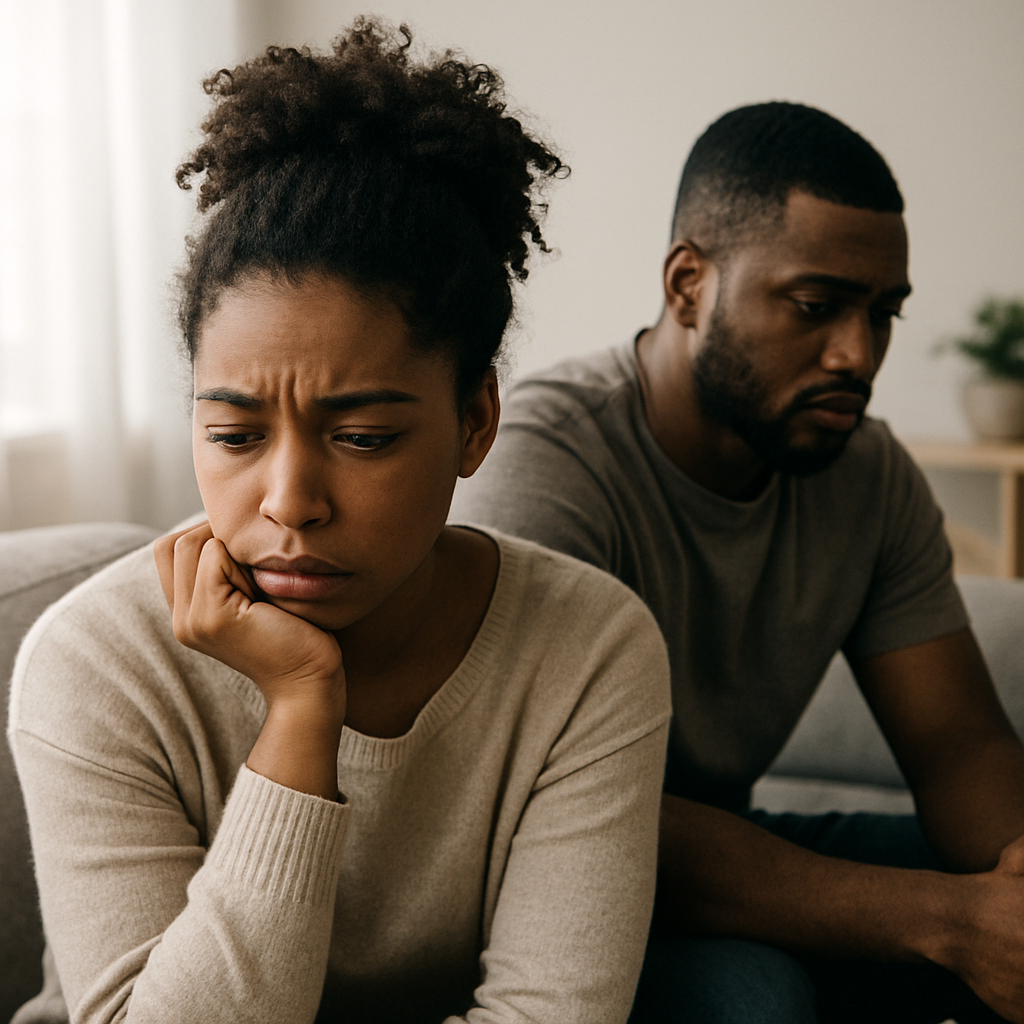Depression is one of the most common mental health challenges in the world today. In the United States alone, an estimated 8.3% of adults experience it, and its impact is felt across many other countries, including those in Africa. It often comes without warning and deeply affects a person’s life—emotionally, physically, and socially. In romantic relationships, depression can create unique challenges, especially when partners are unsure of what’s really going on beneath the surface.
Many people still hold misconceptions about depression. Some believe it’s a condition that only affects the wealthy or the lazy, but in truth, depression knows no boundaries. It can affect people of all ages, backgrounds, and walks of life. In relationships, it can be especially difficult to manage because emotions—often the foundation of intimacy—become fragile or hard to express. A partner who is depressed might pull away, act distant, or behave in unfamiliar ways. If their significant other doesn’t understand what’s really going on, they might assume the worst or even walk away.
That’s why it’s so important to approach the subject with care and awareness. The first step is to understand the nature of your partner’s pain. Depression can have many causes—grief, trauma, stress, physical illness, or even unresolved past experiences. Getting to know what your partner has gone through can help you support them in a more meaningful way. Talking about the root of the pain is healing in itself, but not everyone finds it easy to open up. One of the hardest parts of dealing with depression is finding someone who genuinely listens and understands. If that person is you—their partner—your love and care can offer a kind of comfort that’s difficult to find elsewhere.
Before starting the conversation, take a moment to think carefully. Ask yourself: Does my partner know they might be dealing with depression? Do they need someone to listen or is professional help necessary? What kind of support would be most helpful right now? Are there specific words or actions I should avoid so I don’t make things worse? These reflections will guide you in having a more sensitive and effective conversation.
Choosing the right time and setting is just as important as what you say. There’s no fixed hour or day to talk about difficult topics like this. What matters is the emotional space. Try to speak when your partner seems calm and open, and find a quiet, peaceful place without distractions. Make sure they know you’re there to listen without judgment. Just being present and showing that you care can mean the world to someone struggling.
Communication should go both ways. Whether you are the one experiencing depression or the one offering support, it’s important to express your own feelings too. If you’re not ready to talk, it’s okay to say so. If you are the one starting the conversation, be honest about why you’re bringing it up. Let your partner know that you’re not trying to fix them—you just want to understand and help them feel less alone. Use encouraging, gentle language, and show them they are still valued and loved. Healing becomes more possible when a person feels seen and accepted.
It also helps to keep the conversation grounded in real, supportive information. Depression can be connected to other conditions like anxiety, substance abuse, or chronic illnesses such as diabetes. Speak clearly about what you’ve noticed or experienced. This helps your partner—or yourself—consider what kind of help might be needed, whether emotional, medical, or psychological.
Depression doesn’t just affect individuals—it affects relationships. Talking openly about it can be a powerful step toward healing, and it may even bring couples closer. When love is expressed with honesty, patience, and genuine concern, it becomes a safe space where recovery can begin. If you feel like the weight is too heavy to carry alone, don’t hesitate to reach out to a mental health professional. Sometimes the most courageous thing we can do for ourselves or our partner is to ask for help.
In the end, depression doesn’t have to destroy connection—it can deepen it, if approached with empathy and intention. Start where you are, say what you can, and most importantly, be kind to yourself and the person you love.


